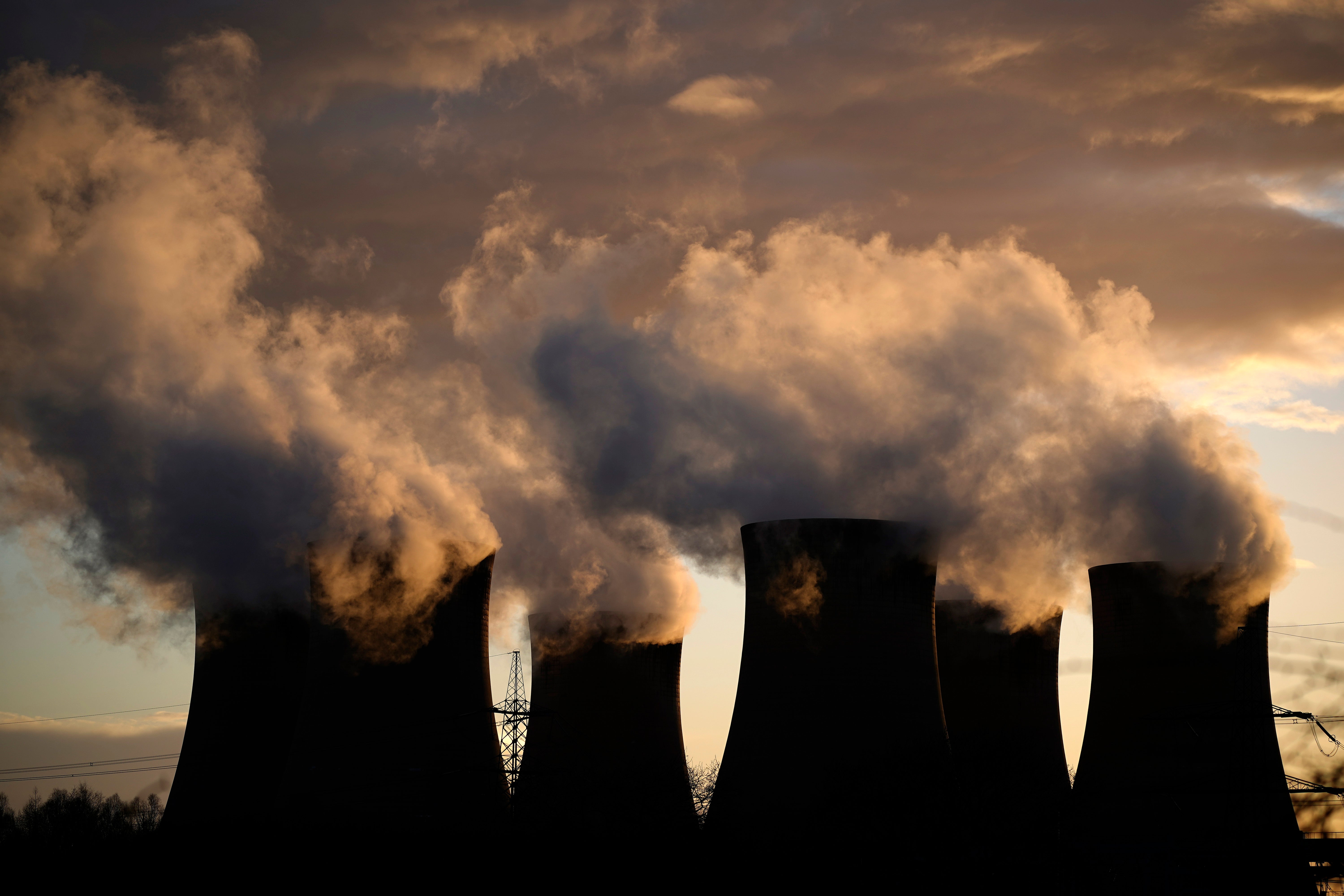UK’s biggest carbon emitter Drax ‘greenwashing’ wood-fired power at Cop26, campaigners say
Power station in North Yorkshire releases over 13 million tonnes of CO2 a year, using around 7 million tonnes of wood pellets

Your support helps us to tell the story
From reproductive rights to climate change to Big Tech, The Independent is on the ground when the story is developing. Whether it's investigating the financials of Elon Musk's pro-Trump PAC or producing our latest documentary, 'The A Word', which shines a light on the American women fighting for reproductive rights, we know how important it is to parse out the facts from the messaging.
At such a critical moment in US history, we need reporters on the ground. Your donation allows us to keep sending journalists to speak to both sides of the story.
The Independent is trusted by Americans across the entire political spectrum. And unlike many other quality news outlets, we choose not to lock Americans out of our reporting and analysis with paywalls. We believe quality journalism should be available to everyone, paid for by those who can afford it.
Your support makes all the difference.Campaigners at Cop26 have accused energy giant Drax, which runs the biggest wood-burning power station in the world at its North Yorkshire premises, of “greenwashing” the practice of burning wood pellets for energy, calling for an end to this method of power generation.
Following protests at the Glasgow summit outside an event at which Drax representatives were speaking, campaigners carrying banners described Drax’s claims of “sustainable wood burning” as “greenwash”, which undermines the core aim of the conference.
The protests come days after Drax was dropped from an index of green energy firms amid growing concern within the financial sector over the sustainability of its wood-burning power plant.
The company was previously one of the largest coal-users in Europe for the power station, but by 2016 had been converted to run entirely on wood pellets which Drax says are made using wood unsuitable for other industries, and emit 80 per cent less CO2 emissions than coal.
Nonetheless, the firm’s power station in Yorkshire remains the UK’s single biggest carbon emitter, releasing over 13 million tonnes of CO2 from burning wood last year, and using around 7 million tonnes of wood pellets every year – the equivalent of about 25 million trees, scientists have said.
This is more wood than the entire forestry output of Britain.
In the UK, over £1bn in renewable electricity subsidies go to burning wood in power stations every year, of which £832 million went to Drax in 2020, according to figures from Drax’s 2020 Annual Report.

But there is now growing dissent over support for burning biomass for electricity, which critics have said can harm the climate and biodiversity.
Meanwhile, local activists in regions where woody biomass is sourced are raising the alarm over the loss of their forests and the industry’s impact on local air and water quality, according to environmental organisation BiofuelWatch.
Sally Clark from the NGO said: “Drax relies on public money which should instead be funding a just transition to cleaner energy for all of us. Drax was fined a record $2.5m (£1.9m) for air quality breaches at its Mississippi pellet plant this February, this figure is roughly equivalent to the £2.27m Drax is handed by the UK government every single day.
“It’s outrageous that the world’s biggest tree burner, Drax, and the world’s largest wood pellet producer, Enviva, are playing a prominent role at Cop26 events while communities who are most impacted by Drax’s forest destruction are shut out of the climate summit. Our forests and our climate are under threat from policies which should be supporting renewable energy but which are instead benefiting big polluters like Drax.”
A Drax spokesperson told The Independent: “The climate crisis is the greatest challenge facing our planet and the UK government’s recently published Net Zero Strategy makes very clear the critical role that biomass will play in both reducing emissions as well as removing carbon dioxide from the atmosphere. This is also the view of the world’s leading climate scientists at the United Nations Intergovernmental Panel on Climate Change.
“Drax’s biomass meets the highest sustainability standards, and these ensure that we do not use biomass that causes deforestation, forest decline or carbon debt. This is a fundamental commitment in our world-leading sustainable biomass sourcing policy.
“Converting Drax Power Station to use sustainable biomass instead of coal transformed the business into Europe’s biggest decarbonisation project and has helped Britain decarbonise its electricity system at a faster rate than any other major economy. We have reduced our emissions by more than 90 per cent in the last decade and Drax is now one of Europe’s lowest carbon energy generators.”
Join our commenting forum
Join thought-provoking conversations, follow other Independent readers and see their replies
Comments